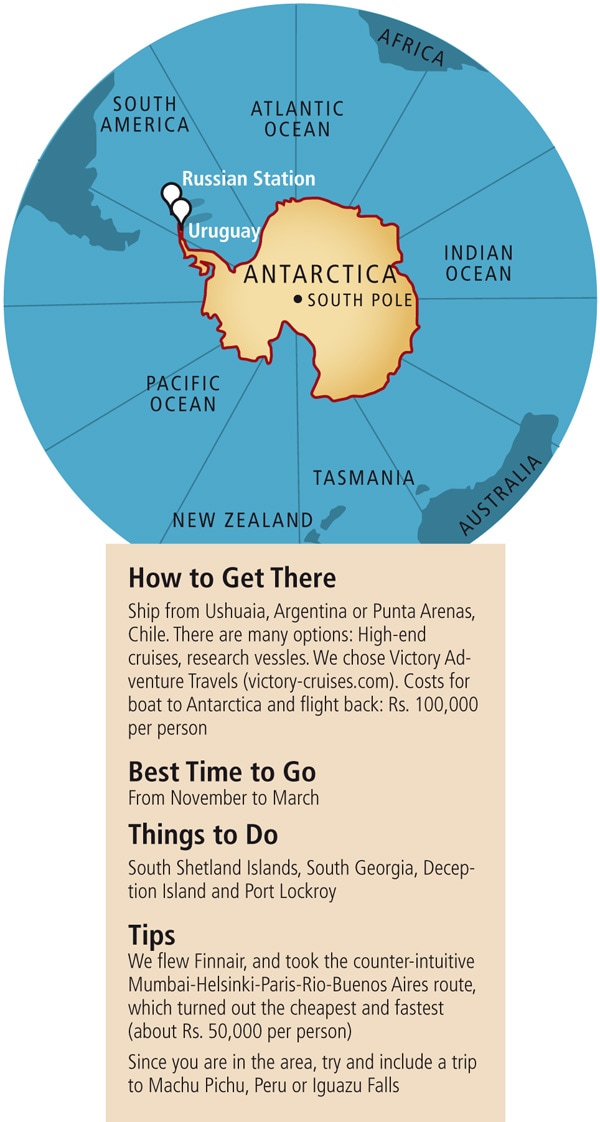
Antarctica: The Last Continent
Icebergs, scientists, seasickness, penguin poo: It’s all part of an Antarctica expedition where you actually get to go ashore
At Ushuaia, the capital of Tierra Del Fuego in Argentina and the southernmost city in the world, we board the Grigoriy Mikheev, a Russian icebreaker. I am wearing a micro-fibre jacket made to order at a small Mumbai shop that supplies all kinds of mountaineering equipment. It’s not cold, but it’s windy enough to freeze. The icebreaker has nice, warm rooms.
The trip is turning out to be easier than I thought. Until the night that us 18 passengers step off the ship, into Zodiacs — inflatable boats — to zip off in the darkest night, not a star in the sky, towards a lighthouse, for dinner. I hold on to the rope handles with a death grip. I am vegetarian, I want to scream, let me go back to the ship! But the silence on board means everyone is nervous too. We are treated to one of the best meals at the restaurant and I tell the organiser, Captain Ben (and his wonderful wife and child) that the spinach and cheese-filled ravioli is unforgettable. They think my religion does not permit wine, but I am too chicken to admit I’m scared that imbibing could mean I would fall off the Zodiac on the way back.
Mornings are amazing. We are travelling with scientists and researchers ready to share all kinds of information. Breakfast is as international as we choose. And inevitably long, because the conversation is so amazing.
And yes, we have a cranky older Indian man travelling with his NRI son who, in five minutes, alienates everyone by announcing how much his ‘estate’ in Silicon Valley is worth.
The captain, an amiable Russian, indulges my nine-year-old son’s every question and earns the title of ‘Better than Google about sea stuff.’ He announces a contest: “An expedition hat for anyone who spots the first iceberg.”
First? Icebergs meant the jagged-edged things that sank the Titanic!






